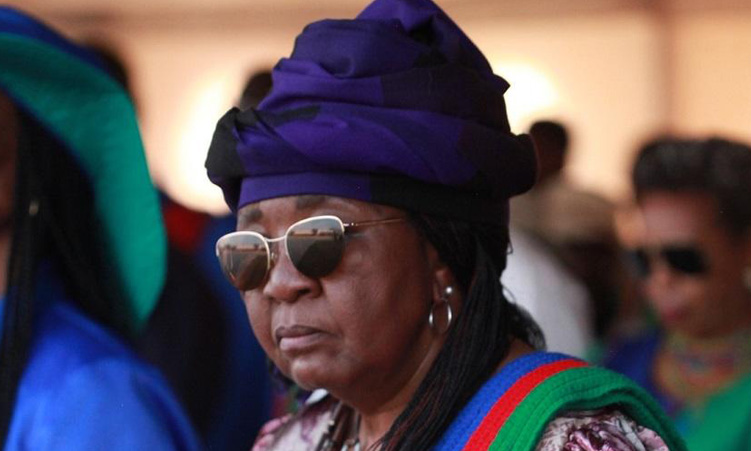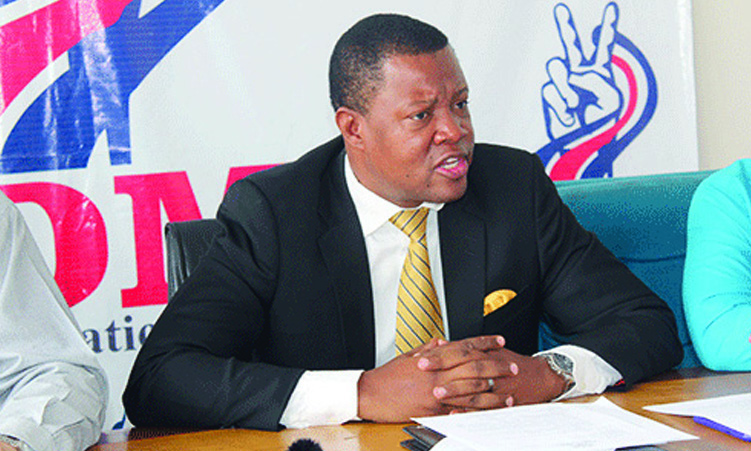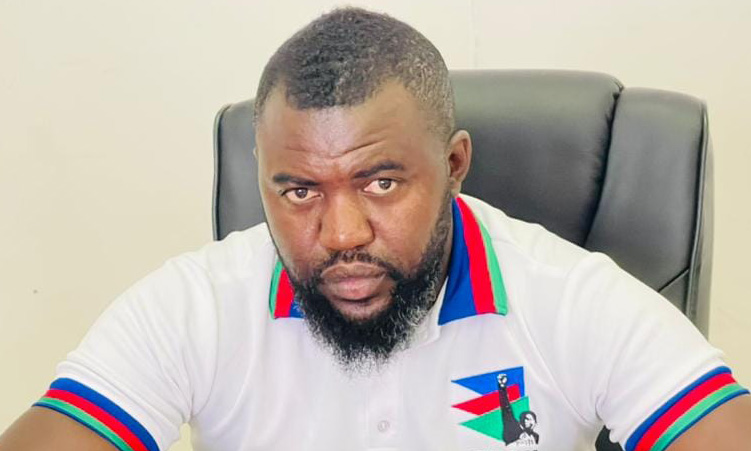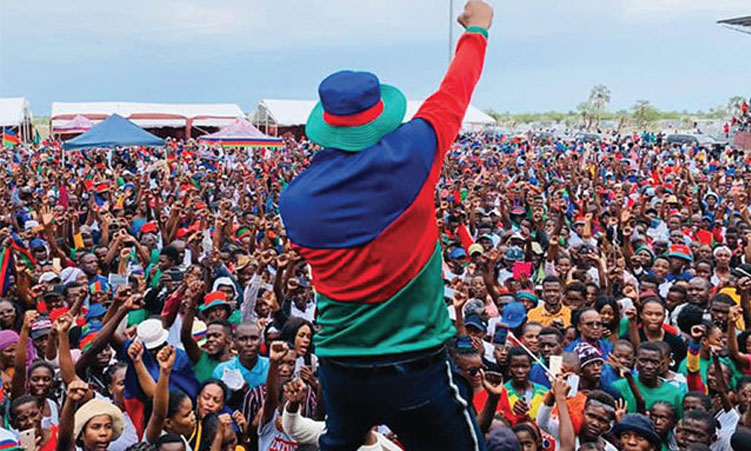Following the significant historic decline in support for the African National Congress (ANC) in South Africa’s recent elections, political analysts predict that Swapo could face a similar challenge in the upcoming November elections.
The ANC, Africa’s oldest liberation movement and Swapo’s sister party, gained nearly 40% of the vote in Wednesday’s election, forcing it to seek coalition partners to form a government.
The main opposition party, the Democratic Alliance, received 21,63% of the vote, while uMkhonto we Sizwe (MK), a new party led by former president Jacob Zuma, secured 14,71%.

Swapo secretary general Sophia Shaningwa and her deputy Uahekua Herunga did not respond to questions sent yesterday on their reaction to the ANC’s election results.
However, former ambassador Pius Dunaiski yesterday said the dramatic fall of the ANC will surely have ramifications for Namibia and is likely to topple Swapo from government.
He said this will embolden opposition parties and breathe new life into them.
The result will inevitably have the most influence on Namibia’s political landscape, he added.
“The political meltdown by or crash by the ANC would have a huge dent on Swapo’s posture and confidence. Political pundits have clearly tracked the trends of how liberation movements fall apart due to misrule, corruption and tribalism, among others,” Dunaiski said.
Political expert Johannes Coetzee yesterday said democracy in South Africa achieved a breakthrough with consolidated democracy.
This will have a positive impact on the Southern African Development Community (SADC) and Namibia, which will depend on how political parties in South Africa are able to manage their differences and form either a coalition government or a government of national unity, which is a strong probability, Coetzee added.
“If the ANC can work together with MK, markets will respond negatively, a very unstable rand and Namibia dollar pegged to the rand is foreseen, because of the radical expected nationalisation of industries as an expected demand from the MK if they form a coalition with the ANC, which is highly unlikely,” he said.

Meanwhile, Popular Democratic Movement leader McHenry Venaani yesterday said his party welcomes the election outcome in South Africa.
Venaani said Namibians should expect Swapo, with its misgovernance and corruption, to fall below 50%.
“I am currently speaking with key party leaders in our neighbouring sister republic, receiving briefings and offering counsel on how to navigate the complex terrain of negotiations. We wish the parties well,” he said.
“We are deeply encouraged to do more to present a future coalition government in Namibia.”
Namibia Economic Freedom Fighters (NEFF) deputy leader Kalimbo Iipumbu yesterday said there is a clear indication that the opposition are preparing themselves to be the alternative governments of the future.
Iipumbu said NEFF shares the same ideological orientation with South Africa’s Economic Freedom Fighters, hence their supporters are prepared to punish the ruling party the same way their neighbours have done to the ANC.
“We are organically engaging and orienting our people towards the economic fight for freedom and exposing the empty promises of Swapo,” he said.
Political analyst Ndumba Kamwanyah yesterday said the key variables that played a role in the outcomes in South Africa are similar to the Namibian context.
“The results there will have a ripple effect on Namibia. The ANC dropped from 57 in the last elections, to 40 in the current elections. The key variables are unemployment, corruption, the youth vote and poor service delivery. That is exactly the same in the Namibian context, we might witness the same results come November,” he said.

Landless People’s Movement (LPM) youth league leader Duminga Ndala yesterday said the election outcome reflects a growing discontent with the ANC’s governance, highlighting the populace’s frustration with persistent issues like unemployment, landlessness, inequality and corruption.
“The decline in support for the ANC was expected, given its failure to improve the material conditions. Additionally, the results indicate a demand for change and accountability, suggesting that voters are seeking alternatives that better address their needs and concerns.”
Ndala said the opposition parties worked hard to dismantle the ANC’s dominance.
“This is very commendable and something we should draw lessons from in order to liberate our people from the shackles of Swapo,” Ndala said.
Meanwhile, Swapo Party Youth League (SPYL) spokesperson Moses Shikerete yesterday said Namibia has a unique political playing field which will not be affected by South Africa’s election results.
“Our issues here are different to those of South Africa. Our people know the work that the Swapo-government has been doing and continues to do in improving the quality of life for every Namibian.”
He noted that Swapo has a strong relationship with its ground forces and listens to the needs and aspirations of its people.
“This is why they continue to renew our mandate.”
During the 2019 elections, Swapo lost its overwhelming parliamentary dominance after gaining 63 seats in the National Assembly election – just short of a two-thirds majority that would have enabled the party to push through constitutional changes despite opposition from other parties.
The late president Hage Geingob won re-election with 56,3% of the votes in the presidential election – a fall of more than a third of his 87% share of the vote in 2014.
Independent presidential candidate Panduleni Itula received 29,4% of the votes in the presidential election, coming second to Geingob.
Stay informed with The Namibian – your source for credible journalism. Get in-depth reporting and opinions for
only N$85 a month. Invest in journalism, invest in democracy –
Subscribe Now!






